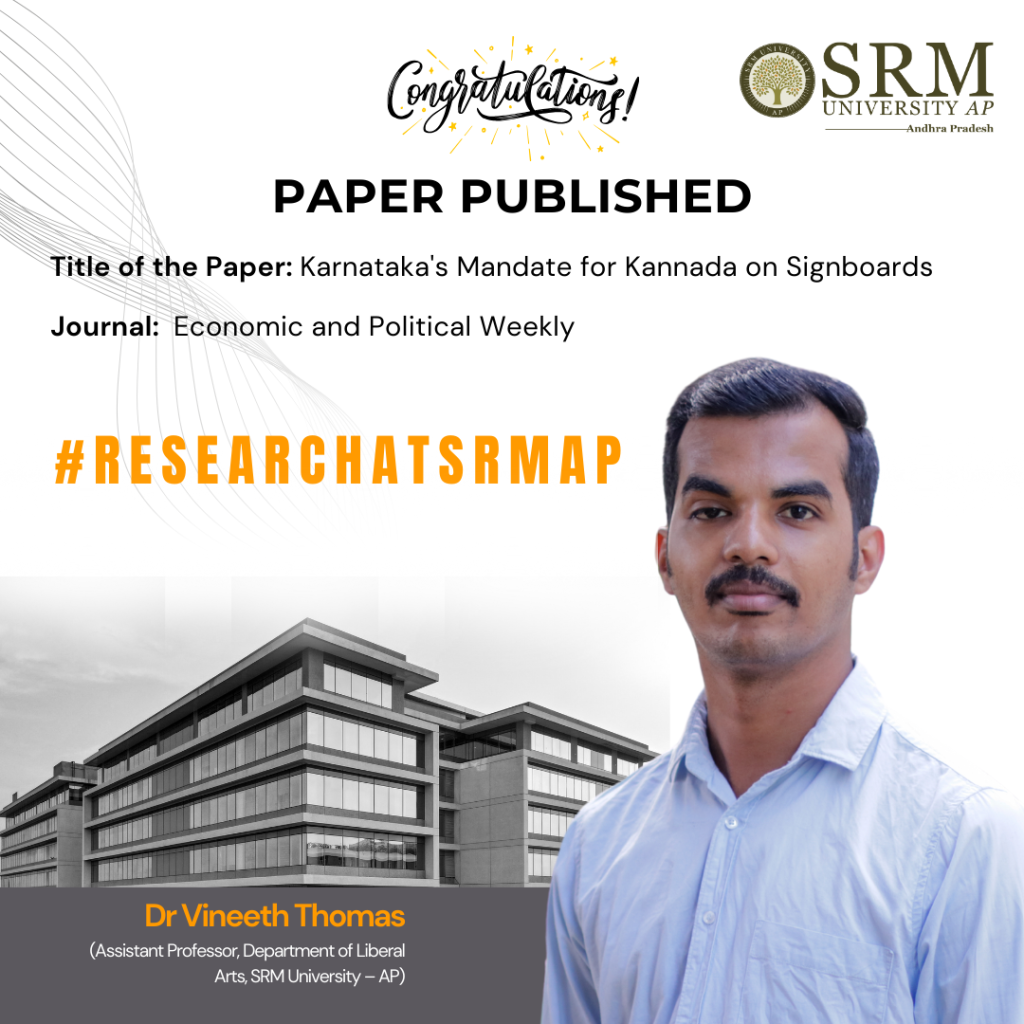- In Sikkim, a Golay wave sweeps SKM to power June 3, 2024
The Indian Express
Continue reading →

- Dr. Vitalram Rayankula May 31, 2024
- SRM AP and MGIT: An Alliance Fostering Research Advancements in Drone Technology May 30, 2024

The Centre for Drone Technology, SRM University-AP, has signed an MoU with MGIT Co. Ltd, South Korea, on May 09, 2024, to facilitate research, academic, and scientific knowledge exchange in Drone technology. The agreement to spearhead research and technology developments in drone applications was signed by Dr R Premkumar, Registrar of SRM University-AP, and Mr Jeong Woo-Chul, CEO of MGIT Co. Ltd, in the presence of Mr Yun Cheol-Hun, Assistant Manager, MGIT Co. Ltd, and Dr Pranav RT Peddinti, Assistant Professor, Dept. Civil Engineering.
This collaboration signifies a major leap forward in harnessing the power of cutting-edge drone technology to address real-world challenges. The MOU facilitates the university to have experts from MGIT deliver seminars, workshops, symposia, etc., to the students and faculty of SRM AP on drone technology, its allied technologies and its applications. Undergraduate and postgraduate students and doctoral scholars of the university will also have the opportunity to be part of collaborative research projects and internships that would hugely benefit them in enhancing their awareness of drone technology.
The scope of the MOU also extends to collaboration with MGIT for national and international research funding, eligible researchers from MGIT to enrol in various courses at SRM AP, and extending the university’s academic, research and technical facilities such as laboratories, library, etc to MGIT team for research purposes.
The MOU between SRM AP and MGIT explores innovative solutions, pushes the boundaries of possibility, and revolutionises the future of drone technology.
Continue reading → - Dr Nilakantha Meher May 30, 2024
- Examining Karnataka’s Mandate for Signboards: Paper by Dr Vineeth Thomas May 30, 2024

In a research paper published in Economic and Political Weekly, Dr Vineeth Thomas, an Assistant Professor at the Department of Liberal Arts, delves into the socio-political and economic implications of the “Karnataka’s Mandate for Kannada on Signboards” amendment. The article highlights the social and cultural significance of the amendment and raises awareness about the potential economic challenges it may pose. This insightful paper not only makes for an engaging read but also serves as a valuable resource for policymakers and politicians, bringing attention to the practical and social implications of the amendment.
Abstract
The Kannada Language Comprehensive Development (Amendment) Bill, 2024, ratified by the Karnataka Legislative Assembly and Legislative Council, stands as a legislative landmark with profound implications. This commentary critically analyses the socio-economic-political implications, unravelling the intricate web of influences that the Kannada Language Comprehensive Development Bill introduces within the diverse and dynamic landscape of Karnataka.
Citation
Roshmi Antony, Vineeth Thomas, Lulubala Nayak (2024)-, Karnataka’s Mandate for Kannada on Signboards, Economic and Political Weekly, ISSN (Online) – 2349-8846 (SCOPUS /ABDC Indexed)
Continue reading →

